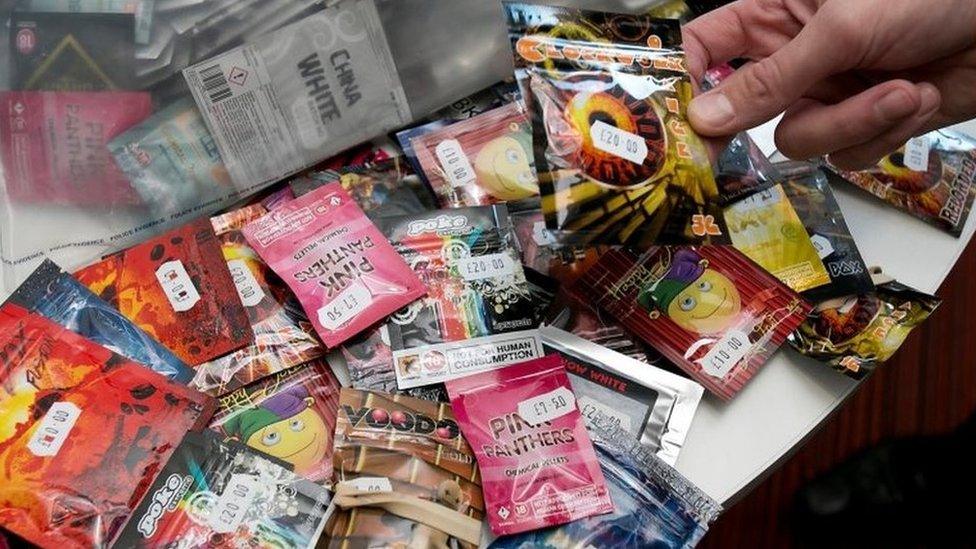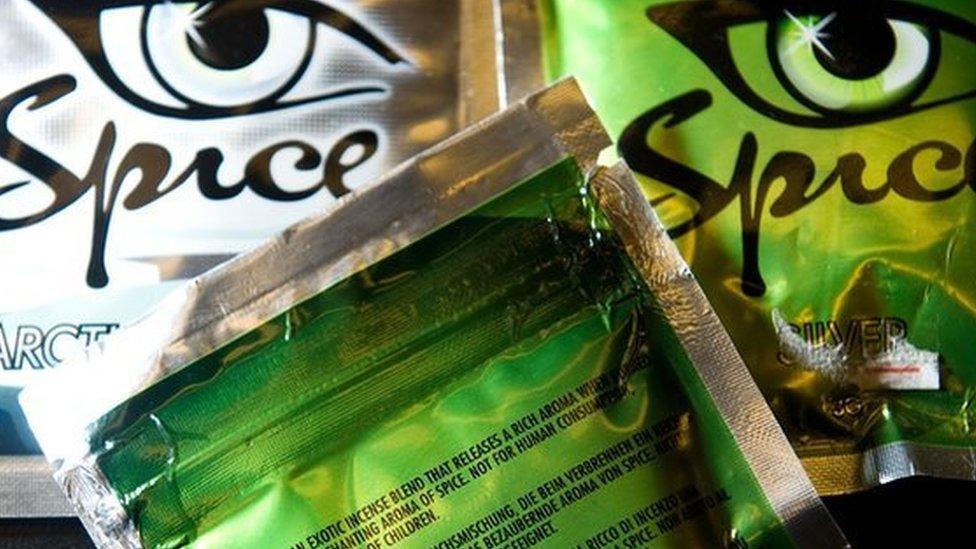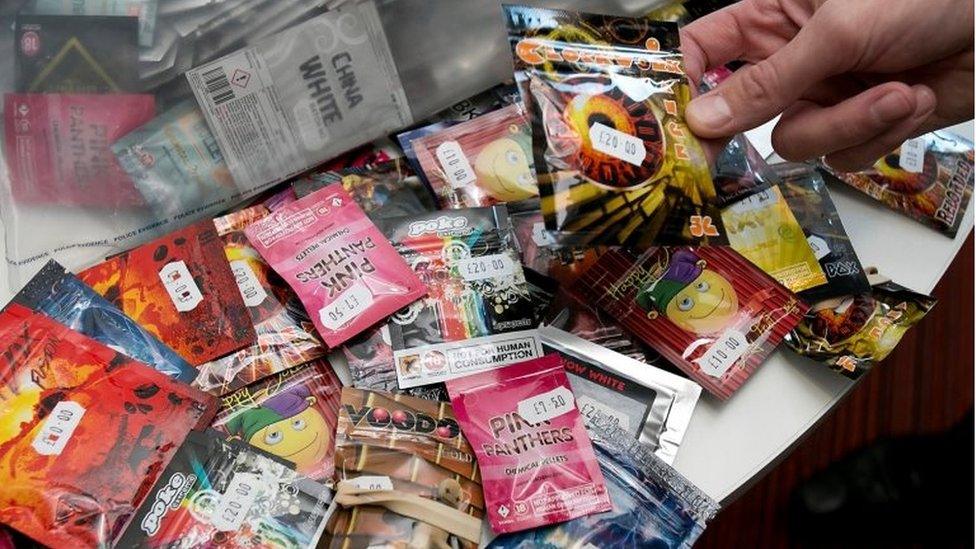'Ban driven new psychoactive substances underground'
- Published

The new law to crack down on designer drugs has seen no prosecutions or cautions issued in three of the four Welsh police force areas.
It became illegal to produce, distribute, sell or supply the drugs, formerly known as "legal highs", in May.
Only South Wales Police said it had cases relating to new psychoactive substances, external (NPS).
Drug charities have raised concerns the law has driven the drugs "underground".
North Wales, Dyfed-Powys and Gwent Police forces have not cautioned or prosecuted anybody within the first six months of the law being introduced.
The forces also said no businesses had been shut down in that time.
South Wales police reported four cases, but could not specify whether each related to a person, or a business being shut down.
'Worry'
Ifor Glyn, regional director of Drugaid Cymru, a charity with services covering mid and south Wales, said the law was "a knee-jerk reaction" which had "no long-term planning".
"From our point of view, the change in law doesn't really make any difference to be honest. People are still using these drugs, definitely," he said.
"Probably all that has happened is it's gone from being sold in shops to being pushed into the black market or illegally on the internet.
"These new psychoactive substances come with a lot of concern and worry and a lot of bad side effects."
He raised concerns that NPS are "more attractive" to younger people, yet they are less likely to come forward and access Drugaid's services.
"People won't seek the advice which they might have done before they were made illegal," he added.


Offenders who break the new laws face up to seven years in prison under the Psychoactive Substances Act
Police are also be able to shut down "headshops" - stores which sells drug paraphernalia - and online dealers in the UK
Under the new legislation, authorities have powers to seize and destroy psychoactive substances, as well as carry out searches of people, premises and vehicles
Alcohol, tobacco, caffeine, food and medical products are excluded

Clive Wolfendale, the chief executive of CAIS, which provides support on substance abuse and mental health issues across north Wales and Powys, said: "These substances are potentially lethal - but poorly understood, addictive and now illegal.
"People who use them are guinea pigs for profiteering dealers, and put themselves and those around them at risk of significant harm."
He added that the charity's COMS project, external was working to "better understand the impact of these dangerous chemicals" and hoped it would "inform future policy".
Responding to the BBC Wales Freedom of Information request, Supt Nick McLain of Gwent Police said the force had since made an arrest and was waiting on forensic examination results.
"The new legislation has proved extremely effective in removing NPS from general, over the counter sales," he said.
DCI Ross Evans of Dyfed-Powys Police stressed officers have been making sure businesses were aware of the new legislation.
"We are continuously monitoring the situation and there is a clear process for our officers to follow should they find new psychoactive substances being sold within the Dyfed-Powys force area," he added.
North Wales Police said it would not comment on why prosecutions are brought or not brought.
South Wales Police was contacted for comment.
- Published26 May 2016

- Published29 May 2015
